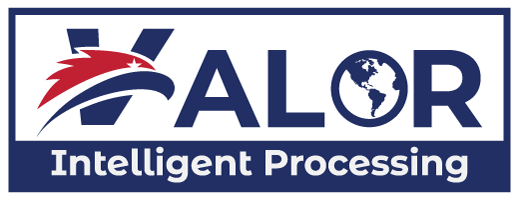If your revenue changes with seasons, your debt collection approach should too. From higher sales and tighter schedules during fall and winter to slower invoice activity in off-seasons, businesses in Dallas often experience clear cycles. When collections follow the same approach year-round, they don’t always align with your customers’ financial rhythms or your company’s cash flow needs.
Fall is a great time to reassess your strategy. As kids go back to school and businesses ramp up for the holidays, spending habits start to shift. For companies relying on steady payments, this can spell late invoices or radio silence from longtime clients. The right seasonal adjustments in your collection process can ease friction, improve repayment timelines, and help maintain positive relationships with customers going through short-term money crunches.
Understanding Seasonal Revenue Impact on Debt Collection
Seasonal revenue changes are part of doing business in many industries. For example, retail sees a big surge before the holidays, while home services might slow down during the Texas summer heat. These patterns affect more than sales—they directly impact your customers’ ability to pay and how quickly they respond to collection efforts.
In Dallas, local events like the State Fair of Texas boost consumer activity and business spending. Many small business owners spend heavily preparing and may delay payments until after the event finishes. After that, the holiday season hits, and personal budgets tighten as consumers focus on gift-buying and travel. Many delay resolving debts until they receive year-end bonuses or tax returns.
This kind of behavior shifts payment priorities:
– People focus on current expenses and put less urgent bills on hold
– Business clients often postpone payables during high-spend periods
– Without early outreach, delays grow longer and harder to recover
Adjusting your plan to fit these patterns helps collections stay realistic and effective. Teams that recognize seasonal trends have an edge—when timing aligns with your client’s capability, conversations go smoother and recoveries come quicker.
Customizing Communication Strategies for Seasonal Cycles
One message won’t work the same way year-round. What your customers are experiencing in November won’t be the same as in February. That’s why timing and tone matter more than ever when trying to reach out during seasonal revenue shifts.
Instead of relying on the same scripts, rotate your approach to stay relevant. During financial pressure points like holidays, soften the tone and lead with helpful options. During less stressful times, clear and action-driven communication can encourage earlier resolution.
Try working these practices into your strategy:
– Pause aggressive reminders near the holidays and offer tailored payment options instead
– Reference seasonal timing in subject lines to get better open rates
– Spread out follow-ups during busy seasons, picking up frequency again when people have more room to respond
– Keep your tone professional but warm—people need partnership, not pressure
For example, one Dallas business found that hitting inboxes at the end of September with a “get-ahead-before-the-holiday-rush” message significantly improved payment plan sign-ups. The timing worked because customers were ready to tackle bills before major spending started. It’s all about empathy mixed with good planning.
The better you adjust your communication strategy for each season, the more success you’ll have in reaching people when they’re actually able to engage.
Using Technology To Adapt to Seasonal Changes
Every season comes with its own rhythm, and your tech should help you keep up. Debt collections slow down or pick up depending on what’s happening on your customers’ side—and staying ahead means having tools that work for you automatically when things get busy.
Domestic outsourcing through a US-based call center helps ease the seasonal load. Local reps understand both customer expectations and timing, especially in regions like Dallas where seasonal events impact business quickly. You don’t want to discover in October that you’re understaffed for the December surge.
Here’s how a tech-forward approach makes a difference:
– Predictive dialers improve outreach windows by targeting ideal response times
– Account scoring lets you prioritize who’s most likely to respond based on behavior
– Cloud connectivity keeps your whole team in sync regardless of location
– Trigger-based automation sends payment reminders, updates, or reschedules without delay
– Dashboards help your team monitor plan performance in real time so you can step in before issues grow
Tech doesn’t replace the human touch—it improves it. When software handles the reminders and data, your collections team spends more time having real conversations. That keeps things moving during busy parts of the year and strengthens the customer connection.
Offering Flexible Payment Plans During Seasonal Highs and Lows
Everyone hits a financial dip at some point. Offering flexible payment plans gives customers breathing room during tight times and sets your company up for consistent returns instead of zero progress.
In Dallas, spending slows after peak events. Seasonal businesses like food vendors, event planners, or gift shops might pull in strong fall revenue but struggle through the winter. Self-employed folks also face inconsistent cycles. When companies pressure them with unrealistic demands, most just disengage.
Flexible plans work because they:
– Let the customer pick an amount they can pay during temporary slowdowns
– Offer payment dates that better match their income flow
– Reduce dropped payment agreements or completely unresponsive accounts
– Give your team easy tracking and room to adjust agreement terms as needed
– Turn difficult conversations into continuous payment conversations
Take the State Fair vendor example—a standowner brings in huge September traffic but has minimal October earnings. Letting them begin payments in November after reviewing their intake helps preserve the relationship and improves collection success.
Rigid expectations lead to avoidance. But flexibility, when guided by a smart team, keeps your cash flow active and client relationships intact.
Preparing Your Team for Seasonal Debt Collection Challenges
Your team is still the foundation, even with the right tools. The most advanced database doesn’t help much if your collectors don’t know how or when to apply it. Teams that are prepared for seasonal challenges bring energy and adaptability vital for consistently better outcomes.
Training should focus on reading trends as well as account data. Scheduling calls according to customer season, adjusting scripts for empathy, and knowing peak times to pause or start contact can help your team stay effective without burning out.
Support your staff like this:
1. Lay out seasonal goals backed by what’s happened in previous years
2. Provide updated messaging tools for reaching customers during high-stress times
3. Run refresher training before expected changes like holiday rush or post-tax season
4. Ask reps to share real-time insight into customer responses—this guides future planning
5. Make sure collectors see the full picture, including weekends, holidays, and paycheck patterns
Experts work best when they’re not constantly reacting. Planning ahead gives your team space to strategize rather than just respond. It helps reduce tension inside your office and enhances what customers experience on the other end.
Smart Timing Means Stronger Performance
Debt collection isn’t one-size-fits-all, especially when the seasons shape how businesses and individuals pay. By tweaking your approach to match real-world revenue cycles, you meet people where they are—not just where your balance sheet wants them to be.
In Dallas, where financial priorities shift with events and weather, a tailored seasonal approach that includes tax-aware schedules, empathetic communication, and flexible payments goes a long way. When supported by domestic outsourcing and smart tech, the shift from reactive to proactive collections becomes easier for your team and easier on everyone involved.
Discover how Valor Intelligent Processing can enhance your debt collection strategy by tapping into our expertise in domestic outsourcing services. Let us help streamline your processes and improve recovery during seasonal highs and lows. Explore innovative ways to keep your business on track, no matter the season.


